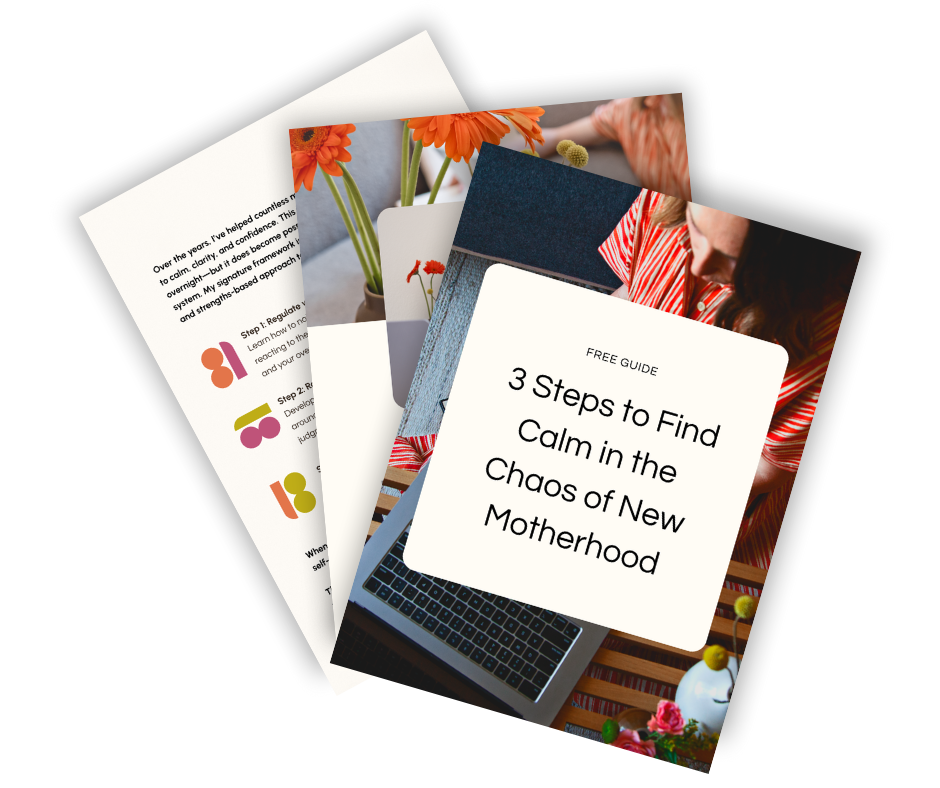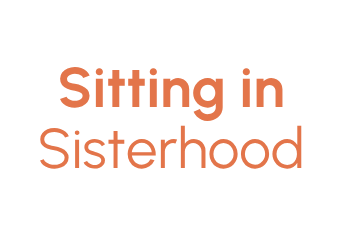Perinatal and Pregnancy Therapy in Denver, CO
When you're growing life inside you, the world expects you to glow. But inside? You might feel overwhelmed, disconnected, or silently unraveling. The truth is, pregnancy and the perinatal period can stir up deep emotional shifts, past wounds, and fears that no one warns you about.
At Sitting in Sisterhood, I offer therapy for postpartum in Denver to support women through the full arc of this transformation — emotionally, spiritually, and somatically. This isn’t about pushing through. It’s about honoring who you are becoming.
What is perinatal therapy?
Perinatal therapy is a space for women navigating the emotional, mental, and identity shifts that come with pregnancy, fertility journeys, postpartum, or even deciding not to have children. It supports you from conception through the first year postpartum — a time when your body and brain are rewiring, your nervous system is on high alert, and your sense of self is evolving.
This work is not just about treating symptoms — it’s about holding space for your whole experience. I help you explore what’s surfacing beneath the surface: grief, rage, fear, disconnection, and the longing to feel like yourself again (or meet the new version of you for the first time).
Most common symptoms of perinatal mental health challenge
- Persistent anxiety, panic, or racing thoughts during or after pregnancy
- Depression, mood swings, or unexplained sadness
- Feelings of disconnection from your body or baby
- Overwhelm, overstimulation, or emotional numbness
- Difficulty sleeping or eating despite exhaustion or hunger
- Intrusive or scary thoughts that you feel ashamed to share
- Identity confusion or loss of your “old self”
These symptoms are more common than you think—and they’re not a reflection of your strength or your love. They’re signals that support is needed.
How do I know if I need perinatal therapy?
- Do I feel like I’m “supposed” to be okay, but I’m struggling inside?
- Am I carrying anxiety, fear, or grief related to my body, pregnancy, or birth?
- Do I feel like I’ve lost parts of myself in this transition?
- Have I experienced loss, medical trauma, or a hard fertility journey?
- Do I feel emotionally flooded, even by small things?
If you answered yes to any of these, perinatal therapy may offer the relief and reflection you’ve been craving.
How I treat perinatal therapy in Denver
I don’t believe in quick fixes or one-size-fits-all care. My perinatal therapy approach is holistic, grounded in somatic awareness, emotional regulation, and soul-centered support.
I use:
- Nervous system tools to reduce overwhelm and anxiety
- Embodiment practices to reconnect you with your body and intuition
- Space to process birth stories, grief, loss, or fear
- Identity work to help you re-meet yourself in this new season
Whether you're pregnant, postpartum, or healing from a fertility experience — I’ll move at your pace, honoring what your body and spirit need most.
What topics can we talk about in therapy for perinatal support?
- Coping with anxiety, fear, or intrusive thoughts during or after pregnancy
- Releasing guilt, shame, or pressure around “not doing it right”
- Processing medical trauma, birth trauma, or loss
- Exploring identity, boundaries, and your evolving relationships
- Supporting your nervous system when the world feels too loud
- Navigating ambivalence, rage, or sadness you didn’t expect
Ready to get started?
Getting to know you
A compassionate, nonjudgmental assessment to understand your unique struggles and emotional needs as a new mom.
Creating a growth plan
A customized therapy plan that integrates emotional support, practical coping skills, and self-care strategies tailored to your life.
Ongoing support and care
Ongoing sessions to build resilience, set boundaries, and create lasting, practical solutions that help you feel more balanced and connected not only as a mother but as yourself.
Perinatal therapy specialist in Denver
I’m Stephanie Poole from Sitting in Sisterhood — a trauma-informed, soul-centered space for women navigating big emotional transitions. Through perinatal therapy in Denver, I support women in coming back to themselves during seasons of deep change. Whether you're in the thick of postpartum, planning for birth, or reclaiming your identity after loss, you don’t have to hold it alone.
Tips & resources for coping with perinatal mental health
- Use grounding exercises to regulate your body: feet on the floor, hand on heart, slow breaths
- Give yourself permission to rest — not just physically, but emotionally
- Unfollow accounts that make you feel like you’re falling behind
- Keep a “truths I want to remember” list for hard days
- Connect with other women who get it — you’re not alone

Hi, I'm Stephanie Poole
Licensed clinical social worker and board certified health and wellness coach.
I help ambitious mothers in postpartum rebuild their strength, reconnect with their voice, and rise — not just as moms, but as whole, resilient women. Through holistic, soul-centered support, I guide them from survival to aligned, embodied living.

Getting to know you
A compassionate, nonjudgmental assessment to understand your unique struggles and emotional needs as a new mom.
Creating a growth plan
A customized therapy plan that integrates emotional support, practical coping skills, and self-care strategies tailored to your life.
Ongoing support and care
Ongoing sessions to build resilience, set boundaries, and create lasting, practical solutions that help you feel more balanced and connected not only as a mother but as
yourself.
Book your first session
Investment: $175 per 60-minute individual session
Includes:
- One 60-minute virtual therapy session tailored to your current needs
- Follow-up email with curated resources or reflections to support your progress
- Text check-ins for brief support between sessions


FAQ
What are the phases of the perinatal stage?
The perinatal stage is typically divided into three parts: the antenatal phase (pregnancy), the intrapartum phase (labor and delivery), and the postnatal phase (after birth). Each stage brings unique emotional, physical, and identity shifts. Therapy during this period offers a steady, compassionate space to prepare for what's ahead, make meaning of what’s unfolding, and begin to integrate all the changes within and around you.
What is the most common perinatal mental illness?
Perinatal depression is the most commonly diagnosed condition, but many women also experience anxiety, OCD, PTSD, or postpartum rage—often in overlapping ways. These aren’t just mood changes; they can affect your ability to function, connect, or even feel like yourself. It’s important to know that you’re not broken or alone—and support is available, even if it’s hard to ask for it.
How long is the perinatal period?
The perinatal period typically begins at conception and continues through the first year postpartum, though many women experience emotional impacts long before or after that window. Therapy recognizes that healing and identity shifts don’t follow a linear timeline—so I honor your story, no matter when you begin this work.
What is the difference between maternal and perinatal?
The term “maternal” focuses on the person’s role as a mother. “Perinatal,” on the other hand, describes the timeframe around pregnancy and birth—including the emotional, physical, and psychological experiences during that journey. You can be navigating the perinatal period whether you're actively parenting, expecting, grieving, or healing.
How can a perinatal psychotherapist help with my mental health?
A perinatal therapist offers more than just talk therapy—they offer attuned, body-based support for a season that can feel chaotic or isolating. Through trauma-informed tools, emotional regulation strategies, and deep nervous system care, they help you feel safer in your body, clearer in your mind, and more connected to your evolving identity. You're not expected to do this alone.
